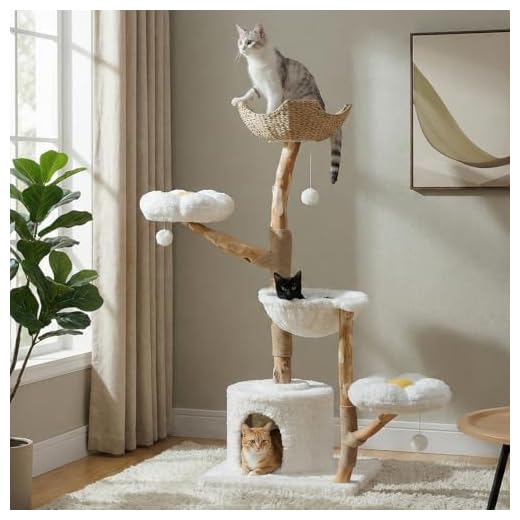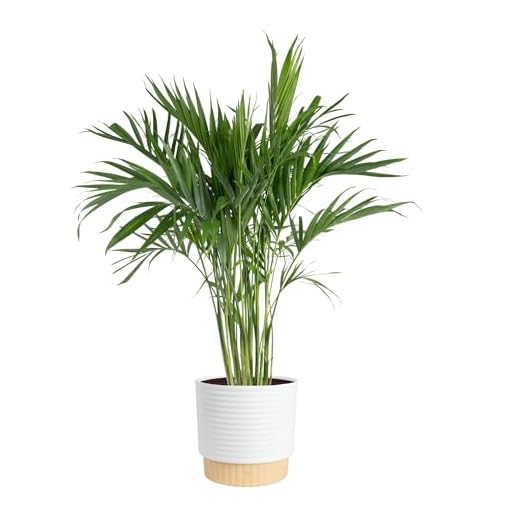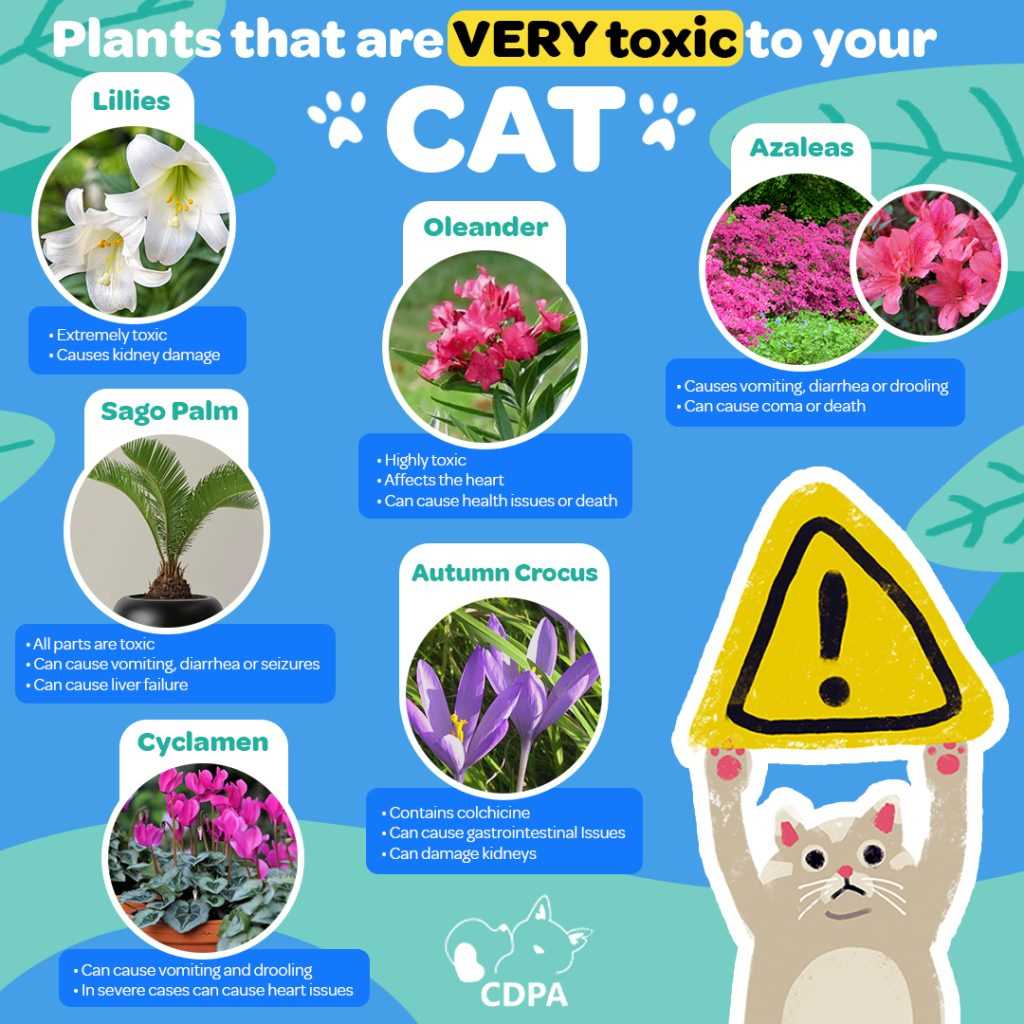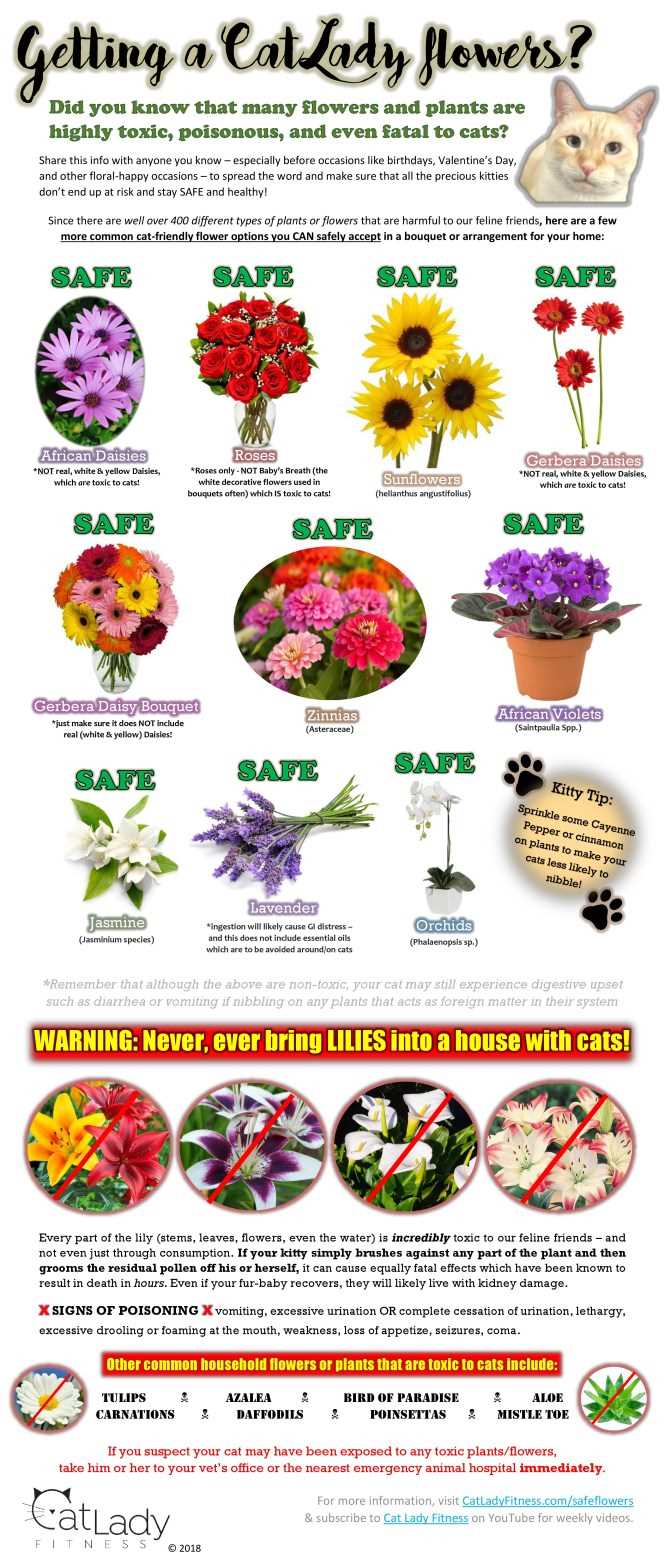

As a Scottish Fold with a flair for mischief, I often find myself exploring the beautiful world of plants. However, not all greenery is safe for curious paws like mine. Some blooms can be harmful and should be avoided at all costs. For instance, lilies, including Easter and Tiger varieties, are notorious for causing severe kidney damage in felines. Just a nibble can lead to serious health issues.
Rhododendrons and azaleas also pose a significant threat. Ingestion can result in vomiting, diarrhea, and even more severe complications. If you spot these in your human’s garden, it’s best to steer clear and let them know to remove them.
Additionally, chrysanthemums can cause gastrointestinal upset, which is no fun for anyone. Always be cautious around these pretty petals, as they might not be as harmless as they look. Educating humans about these dangers can help keep us safe and sound.
Identifying Common Toxic Flowers for Cats
As a curious feline, I often explore my surroundings, including the plants that sprout in my home. It’s essential to be aware of certain blooms that pose dangers to my health. Here’s a list of some common plants to watch out for:
Lilies: These elegant beauties can wreak havoc on my kidneys. Even a small nibble could lead to severe complications.
Azaleas: A delightful sight in gardens, ingesting any part of this shrub can cause vomiting, diarrhea, and even heart issues.
Oleander: This vibrant plant is highly poisonous. Just a taste can result in serious heart problems and gastrointestinal distress.
Chrysanthemums: While they may brighten up a room, these flowers can cause gastrointestinal upset and skin irritation if I come into contact with them.
Castor Bean: Known for its striking seeds, ingestion can lead to severe abdominal pain and even more critical health issues.
Daffodils: The cheerful appearance can be misleading. Eating any part can cause intense vomiting and other digestive troubles.
Foxglove: This stunning plant is also a heart danger. It can lead to irregular heartbeats and other serious symptoms.
Always ensure my environment is free from these harmful plants. If you suspect I’ve ingested any of these, seek immediate veterinary assistance. Keeping my space safe is a priority!
Symptoms of Flower Poisoning in Cats
Immediate veterinary attention is crucial if you notice any of the following signs:
- Vomiting – Often the first indicator, it can occur shortly after ingestion.
- Diarrhea – Loose stools may develop, indicating gastrointestinal distress.
- Lethargy – Reduced energy levels and unwillingness to play or move.
- Loss of appetite – Cats may refuse food, leading to weight loss.
- Abdominal pain – Signs may include restlessness or a sensitivity to touch.
- Difficulty breathing – Rapid or labored breathing can indicate severe issues.
- Excessive drooling – Increased salivation may occur alongside other symptoms.
- Seizures – In severe cases, neurological symptoms can manifest.
Always monitor your furry friend after potential exposure to harmful plants. If any of these symptoms appear, don’t hesitate to consult a veterinarian.
For those looking for reliable solutions to other health issues, like skin infections, check out the best ringworm treatment for cats.
Safe Alternatives to Toxic Blooms for Cat Owners
For my humans who want to keep their homes green and beautiful without risking my health, here are some safe options to consider.
Non-Harmful Choices
Consider the following plants that are friendly for furry companions:
| Plant Name | Description |
|---|---|
| Spider Plant | Easy to care for and purifies the air. Cats often enjoy nibbling on its leaves. |
| Bamboo Palm | Great for indoor spaces, adds humidity, and is non-irritating. |
| Boston Fern | Beautiful foliage that thrives in indirect light and is completely safe. |
| Areca Palm | Pet-friendly and adds a tropical feel to any room. |
| Ponytail Palm | Unique appearance with minimal maintenance required. |
Herbs That Are Safe
For those who enjoy cooking or want to create a herb garden, here are some safe selections:
- Basil
- Parsley
- Thyme
- Rosemary
All of these options are not only safe but can also enhance culinary creations, adding flavor while keeping the environment safe for playful paws.
First Aid Steps for Cat Flower Poisoning
If I ever nibble on something harmful, here’s what to do right away. First, stay calm. My human should remove any remaining pieces of the plant from my mouth without using their hands; a pair of gloves or a cloth is safer. Rinse my mouth gently with water to eliminate any residue.
Next, it’s essential to check for any signs of distress. If I’m showing symptoms like vomiting, drooling, or unusual behavior, they need to contact a veterinarian immediately. Providing the vet with the plant’s name, if known, can help them give the right treatment.
Do not induce vomiting unless instructed by a professional. This could sometimes lead to more harm than good. Instead, keeping me calm and comfortable is key until help arrives. My human should be ready to provide details about my health history and any medications I may be taking.
If possible, take a sample of the plant with you to the vet. This can help in diagnosing the situation more quickly. Always have the contact information of a local animal emergency clinic handy, just in case. Quick action can make all the difference in my recovery!
Resources for Further Information on Cat Safety

Check out the ASPCA’s Animal Poison Control Center for a reliable database of plants that may pose risks. Their website offers an extensive list and guidance on pet safety. Another great resource is the Pet Poison Helpline, which provides immediate assistance and information on potential hazards.
Books and Guides

Consider reading “The Cat Owner’s Manual” by Dr. David Brunner and Sam Stall. It covers various topics about cat care, including safety around household items. Additionally, “Cat Care for Dummies” is a practical guide that can help new cat owners understand their furry friends better.
Online Communities
Join forums like TheCatSite or Reddit’s r/cats for firsthand experiences and advice from fellow cat enthusiasts. Many share their knowledge about safe environments and alternatives to harmful plants. Don’t forget to explore products that keep your home fresh and safe, like the best fabric freshener sprays, which can help maintain a pleasant atmosphere while considering your health and safety.







